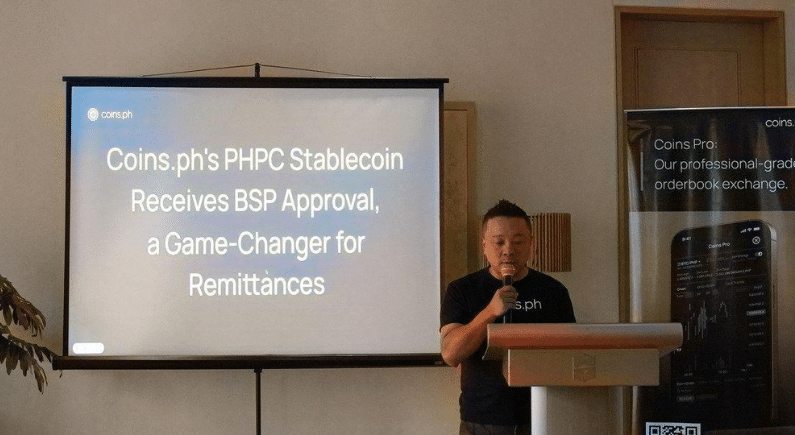Coins.ph receives approval for Philippines’ first retail peso-backed stablecoin

Coins.ph, a Philippines-based cryptocurrency exchange, announced it has received approval from the country’s central bank, Bangko Sentral ng Pilipinas (BSP), to introduce the peso-backed stablecoin, PHPC. As the first Philippine stablecoin available for retail customers, the company said PHPC is set to redefine the landscape of digital transactions.
“PHPC will empower Filipinos to transact seamlessly and securely in the digital economy, while also providing a stable store of value as they participate in the rapidly evolving digital asset landscape,” said Wei Zhou, CEO of Coins.ph.
Stablecoins: A foundation for secure transactions
Unlike cryptocurrencies such as Bitcoin and Ethereum, stablecoins like PHPC are designed to maintain a steady value, making them ideal for various financial activities. Backed 1:1 by the Philippine Peso and fully supported by cash and equivalents, Coins.ph said PHPC ensures stability and security for users, enabling seamless peer-to-peer and business-to-business transactions.
Revolutionizing remittances
The crypto exchange said the approval of PHPC holds promising prospects for remittance services, offering a solution to the challenges faced by Overseas Filipino Workers (OFWs) and their families. With PHPC, Coins.ph said remittances become faster, more cost-effective, and accessible 24/7, revolutionizing the way Filipinos send and receive money.
According to the latest BSP data, personal remittances from Overseas Filipino Workers (OFWs) totalled $37.2 billion (€34.6 billion), marking a 3 percent increase from the previous year’s $36.1 billion (€33.6 billion). The BSP attributed this substantial inflow of remittances to the growing demand for foreign workers in host countries, resulting in a surge in OFW deployments. In 2023, these remittances accounted for approximately 8.5 percent of the country’s gross domestic product (GDP) and 7.7 percent of its gross national income (GNI).
Anticipating PHPC’s impact
While PHPC presents versatile applications in trading and payments, Zhou said its role in remittances stands out as a pivotal use case.
“We anticipate remittances to be a foremost use case for Filipinos as PHPC will not only reduce costs, [but] it also means that now Peso transactions can happen 24/7 and in real time,” Zhou added.






